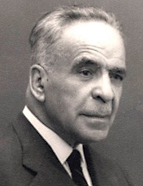

In “ Contribuição portuguesa para a mundividência de quinhentos ” [ Portuguese Contribution to the Worldview of the Sixteenth Century] ( Revista da Faculdade de Letras de Lisboa , XVII, 1951, pp. 45-72) he reserves for Portugal the primacy in nautical knowledge that enabled “ the greatest century in history ” and justifies the violence in contact with the natives as individual acts; praises the cultural dissemination among the natives, “ the Portuguese effort to call the barbarian and the savage to our culture and civilisation ” (p. 57); the article includes notes, which is not the case in many of Cidade ’ s works.
The foreword to O Bandeirismo Paulista na Expansão Territorial do Brasil [ The Paulista Bandeirismo in the Territorial Expansion of Brazil ] may shed some light on Hernâni Cidade ’ s approach, balancing historiography based on the knowledge gained from reading the bibliography and some investigation of primary sources. He explains how the little book was born, which takes up material from Chapter III of Part 6 of the third volume of the História da Expansão Portuguesa no Mundo [ History of Portuguese Expansion in the World ] . As co-coordinator of the three exquisite volumes, he had waited in vain for the chapter to be sent by the illustrious historian to whom it had been commissioned. As he had to take on this responsibility at short notice, he spent his Easter holidays poring over the literature he could find on the subject of bandeirismo , especially Taunay ’ s História Geral das Bandeiras [General History of Bandeiras] . Excited by the subject, he avoided sticking to what others had investigated: “ [he] went into the Historical Archives of Overseas Territories, and for long hours, poring over old documents, he tried to find the footsteps of the indefatigable Haswerus, to listen to the echoes of their tumults of struggle and triumph, as well as barbarities and tragedies ” (p. 12). We could also include in the list of pure historiography, i.e., without focusing on literature, some of the pages he wrote for the História da Literatura Portuguesa Ilustrada, “ Séc. XVII: Aspectos gerais. A Sociedade. O Rei. O Povo ” [ Illustrated History of Portuguese Literature, “ 17 th Century: General Aspects. Society. The King. The People ” (III, pp. 115-118), which demonstrate his customary eclectic erudition and skilful writing, almost as if he were chatting to the reader.
This work is financed by national funds through FCT - Foundation for Science and Technology, I.P, in the scope of the projects UIDB/04311/2020 and UIDP/04311/2020.
